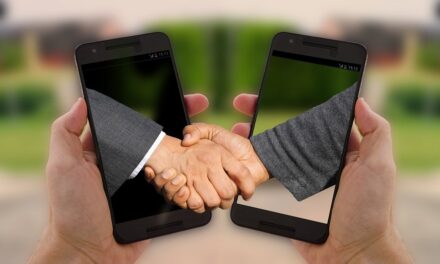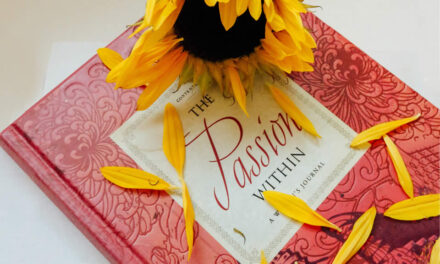5 Simple ideas you can apply with ease — even if you’re busy.
When was the last time you sat still in silence and did nothing for a while?
A few hours ago?
Yesterday?
Last week?
No idea?
While we often try to squeeze more and more into our busy schedules, what really happens is that our need for speed leads to chaos.
We end up feeling more stressed, less focused, less connected, and less productive. When we’re under pressure, we often believe we need to hurry up and do more, while the real answer often lies in slowing down and sitting still. Each year, more and more people report that their lives have become busier and more stressful.
And one of the biggest threats to our mental health is today’s glorified “hustle culture” that makes so many people believe that their worth as human beings is defined by their level of productivity.
But that’s not true.
- Your value as a human being isn’t defined by how much you work, achieve, or produce.
- You’re worthy of love and a sense of accomplishment no matter what you do or “achieve.”
- You don’t need to do more or be more.
- Maybe you even need to slow down and do less.
Instead of measuring your productivity by how many to-dos you get done, measure it by how much time you spend doing things you genuinely care about.
As Jay Shetty writes in Think Like a Monk:
If you really don’t have time to do something you’d like to do, it’s time to reflect on your priorities and your weekly schedule.
While more and more people think of busyness as a badge of honor, the truth is that “not having time” for the things you care about is a sign that things are going wrong.
Most people are in a constant state of busyness because they confuse being busy with being productive or effective. You can be busy doing insignificant things all day long and barely move forward. And you can spend an hour being focused and doing meaningful work that’s more valuable than 10 hours of busy work.
While saying “I don’t have time” might make us seem ambitious and hardworking, the truth is that there’s nothing more valuable than having time for the activities and people you care about.
Next time you want to say, “I don’t have time,” ask yourself whether that’s true. If it’s true, ask yourself how you could eliminate tasks and appointments to have more space in your daily schedule. And if it’s not true, don’t use it as an excuse. Don’t confuse busyness with achievement, and just tell the truth.
This might sound a little weird, but it’s exactly the kind of rebellious act that helps you break free from the patterns you’ve been following for years or even decades.
When I first tapped into the world of personal growth, I tried to be faster, better, and more productive all the time.
I was obsessed with the idea of making the most out of my time, so I was listening to podcasts whenever possible, watching YouTube videos to learn something new while eating my meals, and squeezing short work sessions in between appointments, just to get a little more done.
After three years of trying to make use of every minute, I discovered that it only made me feel stressed and anxious, not accomplished or happy. In fact, I even felt miserable whenever I didn’t consume content while completing basic tasks because I felt as if I was wasting my time.
Looking back, I know that I was wrong.
I had good intentions and wanted to learn more and be more productive, but this constant state of alertness only led to a constant fight-or-flight mode. I listened to podcasts and videos on x2, the actual speed, and I was consuming loads of content that wasn’t even relevant to me.
Nowadays, I embrace the power of doing just one thing at a time. When I eat by myself, I eat in silence and avoid screens or noise. When I prepare my cup of coffee in the afternoon, I enjoy it by sitting on the couch and staring out the window. When I do the laundry, I focus on the laundry.
When I run errands, I focus on my shopping list and the shelves in the supermarket instead of additionally bombarding my mind with podcasts, audiobooks, or music. I even work out in silence sometimes.
As Lao Tzu once famously said:
In the end, slowing down is a choice. But it’s a tough one because you’ve been conditioned to be quicker for your entire life. Nobody ever tells us to take our time and do things slowly. Everyone just wants you to speed up and be more “efficient.”
The good news is that you are the one who makes the rules. And I invite you to choose the ease of doing things slowly more often.
We’re trying to connect with global brands, influencers, and happenings around the globe, yet, we often forget to connect with ourselves. Our desire to be up to date all the time isn’t only stressful but also confusing. By allowing yourself to be less connected to the outside world, you’ll have more time and space to be connected to yourself and the few people you genuinely care about.
I know that reducing your phone usage and screen time isn’t easy, but I encourage you to pick one specific time of your day that you’ll spend screen-free. It could be the first or last 30 minutes of your day, your lunch break, your commute, or any other time that works for you.
Start with a dedicated no-screen time and see how it helps you feel less anxious and more grounded. Once you experience these positive effects, you’ll want to disconnect more often anyway.
Next time you feel a little overwhelmed, anxious, and unfocused, grab a journal or a piece of paper and start scribbling. The best thing about journaling is that there’s no right or wrong — you can do it the way you want to do it. You can do a simple brain dump and just write down anything on your mind or use a pre-structured journal that helps you reflect on your days.
One of the most popular forms of journaling is writing morning pages. This method was popularized by author Julia Cameron. The primary purpose of morning pages is to help you get rid of anxiety, negative thoughts, and distractions by getting them out of your mind onto a piece of paper.
According to Cameron, you should write your morning pages (surprise, surprise) in the morning and write around three pages. The good news, however, is that (once again) you can make your own rules. Write whenever you feel like it or whenever you need it. Write one single line or an entire book.
The beauty of journaling is that you can’t make mistakes, and no matter how long or short your journaling session is, you’ll always feel a sense of relief by getting your thoughts out of your mind.
If you feel overwhelmed by your everyday life, a radical reset might help you gain clarity and perspective. Most people are victims of consumerism and end up owning way too much stuff that clutters their homes and lives.
Whenever I feel like I need a significant change, I start by making space — mentally and physically. I review my wardrobe and get rid of clothes I didn’t wear for months. I clean my kitchen and get rid of items I don’t use.
I take a look at my calendar and eliminate activities and appointments that don’t make me happier or take me closer to my long-term goals. I archive all emails and messages in my inboxes. I delete, archive, or organize all sorts of documents, apps, photos, and videos on my laptop and phone.
Getting rid of things, organizing our digital and physical spaces, and tidying up gives us a sense of relief and ease. Sometimes, doing a little reset can be exactly what you need to gain more clarity.
By slowing down, you make space for the present moment and allow yourself to tap into your intuition. And most of your time, your gut feeling will guide you to the right path anyway. Slowness also makes you more receptive to inspiration because you have more time to discover it.
Simplifying your life and slowing down are no steps back — they’re huge steps forward because they help you have more time and space for the few things and people that truly matter.
By slowing down, you’ll find it easier to prioritize the right activities, people, ideas, and projects because you’ll see things more clearly. Don’t let society stress you. You’re not late or behind.
You’re exactly where you’re meant to be, and you can take all the time to be you and live life according to your own needs and wants. Big love from my screen to yours, S
![]()


Sinem Günel
Author
Entrepreneur, Coach & Dreamer. I write about Personal Growth & Business. Grab your Personal Growth Toolkit:
Web and social network links below…

























